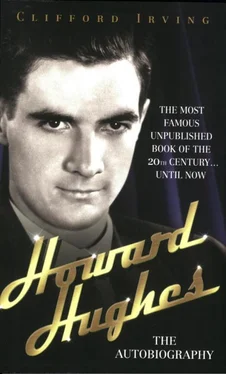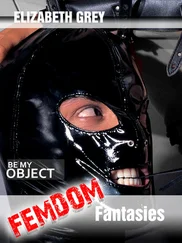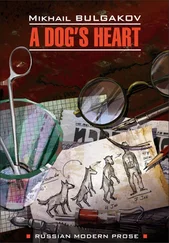I have various types of amplifying equipment which make things easier for me, not only because I don’t like to wear a hearing aid, but also because it’s not really very effective. The condition of my inner ear is special. I have sensitive skin, and the hearing aid irritates the back of my ear. Besides, the electronic gear attracts germs and infection. Several operations have been considered, but the risk was always that I’d lose my hearing completely and go stone-deaf. So I prefer to hear what I can hear and to hell with the rest of it. Most of it isn’t worth listening to.
I never made any bones about my deafness. When I went before a congressional witch-hunting investigation committee in 1947 I had an amplifier, but no equipment is really good enough to give a man perfect hearing. I sat there in the Senate, and sometimes I couldn’t hear a word of what the inquisitors were saying.
I told the senators: ‘Speak up, please, I’m deaf.’
I didn’t say, ‘I’m hard of hearing,’ and I didn’t say, ‘I have a hearing problem.’ I said, ‘I’m deaf.’ I don’t mince words.
Some doctors, including Verne Mason, who used to be my private doctor until he tried to have me put away in a mental institution, said that the deafness might be in part psychological. They may have been right, because there are times when I hear better and times when I hear worse. When I’m depressed or preoccupied, it’s true I don’t hear as well. Make of that what you will.
But it wasn’t only because I had poor hearing as a child, or because I played the saxophone, or because I was shy, that the kids in school thought of me as a sissy. The problem was really that they and their parents were always comparing me to my father, and Big Howard was about as far removed from a sissy as you could get.
You couldn’t challenge my father – he would beat you at anything. He owned one of the first fine automobiles in Houston, a Peerless 35-horsepower. He rebuilt it himself down at Wally Sharp’s garage and he used to race in it. Some colonel in Dallas claimed he had the fastest car in Texas and could beat anything on wheels, and that’s all my father had to hear – he roared up to Dallas and bet this man $500 he’d beat him in his Peerless, and he did, at sixty miles an hour over a dirt track in the year 1920. He loved speed, and I came to love it too.
He used to keep a cash fund down at the police station in Houston, locked up in the chief’s safe. He was haring around Houston then in the Peerless, and in a Stanley Steamer, and when he got picked up for exceeding the speed limits he’d tell the cop, ‘Take it out of my bank account down at the station house.’ They loved that. Texans loved my father. He was a man’s man.
He was happy to pay off the law but he hated paying taxes. (I certainly share his views on that.) The income tax law came in around 1911, and some of my earliest memories are of my father yelling about ‘the goddamn government squeezing me out of my hard-earned money.’ He would back me into a corner and lecture me on how the country was going to the dogs, going to turn socialist. I couldn’t have been more than nine years old, but he tried his best to convince me that the income-tax law was going to ruin him and every other businessman in the country.
‘Sonny, am I right or wrong? Are these taxes fair or is it the beginning of the end?’
‘You’re right, Daddy,’ I’d say, ‘they’re not fair’ – because that’s what my mother told me to say when he got hold of me like that.
In 1919 the whole family visited California for the first time. My father was starting a branch of the Hughes Tool Company in Los Angeles. My Uncle Rupert invited us and introduced us out there. He was writing for the movies then, although he had already made a name for himself with a biography of George Washington. It was pretty exciting for me as a kid, going out to the West Coast, because even as early as that, Hollywood meant only one thing to me: movies. I’d been to see many of them at the nickelodeon in Houston when I was a kid. Rupert took me around to the studios, and I loved it.
In 1921 we went out to California again. That second time I went only with my father, and he put me in the Thatcher School, just north of Los Angeles in Ojai. I was fifteen. That trip, although I didn’t fully realize it, was due to the fact that my father had said to my mother, ‘I need a long vacation from you and marriage, and I’m taking Sonny.’
I was aware that things weren’t right between my parents. There was an atmosphere of bitterness in the house, and on more than one occasion when I was alone with my father, who was usually a talkative man, he would become silent and moody. Once I was in the workshop with him on a rainy day. He stood at the window watching the rain come down, and I could feel the bitterness oozing from him like pus.
He said to me, ‘When you grow up, Sonny, make sure you find a woman who doesn’t pick holes in you and try to change you, and tell you how to dress and what not to say, and tie you down with a ball and chain.’
I couldn’t cope with that. I certainly couldn’t sympathize with him openly, or even inwardly, and I didn’t dare defend my mother to him because I wouldn’t have known how to do it.
My mother never mentioned any of these problems to me. She was a repressed woman. I realize now that my mother loved me more than she loved my father. In a sense I had taken his place as the object of her love. My father knew this; he was a warm-hearted man, and my mother presented a very cool exterior. Many times I saw my father throw his arm around her shoulder and try to be affectionate, and she would stiffen up. I guess she knew she wasn’t the only one, anymore, who was the object of his affection, and over the years this had hurt her too much, and she crawled into a shell. But I have to be fair to Daddy too: he had a wider capacity for love, and if he loved many people it didn’t diminish has love for the few he loved the most.
Out in California I could see what my father was doing: there was. always a pretty woman around. We stayed at Mickey Nielan’s house in Hollywood. That was Marshall Nielan, the film director. One day Daddy went out with Mickey Nielan and left his Buick there in the garage, and I decided to play hookey from school and take a little spin in it. I had a girl with me, not a classmate but a waitress from one of the joints around there. I wasn’t having an affair with her –I was still a little too young and unsure of myself to fool around that way. Although according to my father I wasn’t too young. In fact he thought I was a little backward in that department.
Had he made any attempt to introduce you to sex?
Yes, he made an attempt, but I’d rather not talk about that – not yet.
I was with this girl, driving around in my father’s Buick. I was going to show her one of the film studios, the old Metro lot where Uncle Rupert had taken me on my first trip two years before. But we drove up to the gate and they didn’t know who I was – the name Howard Hughes didn’t mean anything then – and the guard wouldn’t let me in.
I was embarrassed, because I had given this girl a big line about my uncle, and I couldn’t even get past the guard at the Metro lot. To make matters worse, on the way home I banged into a traffic stanchion and put a dent in the fender of the Buick. This didn’t please my father, until I told him about the girl, and then he eased up and said, ‘Okay, Sonny, it was for a good cause.’
But the fact that I couldn’t get into the studio was a memory that stayed with me. In later years, when I owned RKO Pictures, I often remembered that there was a time in my life when they wouldn’t even let me past the gate at Metro-Goldwyn-Mayer I mentioned that incident to Louis B. Mayer when I wanted to buy MGM from him, and we had a good laugh about it. He thought I was joking at first about wanting to buy his studio and then when he realized I wasn’t joking he didn’t take it well. He didn’t like the idea of a twenty-one-year-old telling him he wanted to take over MGM.
Читать дальше












